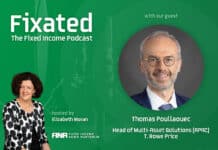
-
More than half of Australian investors feel positive about their finances, despite the macroeconomic headwinds.
-
Investors have high expectations, hoping for 8% above inflation this year.
-
More than three quarters of Australians say higher everyday costs are their biggest financial fear.
Australian investors remain positive about their finances despite stubborn inflation, a looming recession, and last year’s stock market losses, according to a global survey of 8,550 individual investors by Natixis Investment Managers (Natixis IM).
The survey of investors with more than US$100,000 in investable assets, conducted in March 2023, found that Australian investors are more worried about their finances than overseas investors. 58% of Australian investors have a positive outlook on the state of their finances, compared to more than two thirds of global investors, and 25% of Australian investors feel stressed, compared to 22% internationally.
The economy and markets have undergone significant shifts moving from a world of low inflation, low rates, and high correlations to one of higher inflation, rising rates, and lower correlations. These changes may highlight critical gaps in investment knowledge and investment portfolios as Australian investors are still expecting to make returns of 8% above inflation this year.
Investors are very aware of the changing economic environment and, while largely confident in the long-term, are fearful of the associated risks. More than three quarters (76%) of Australian investors say higher everyday costs are their biggest financial fear.
Also read: 5 Risks To Be Aware Of When Investing In Alternatives
In addition, 40% of Australian investors said that a large, unexpected expense was a big concern, while 22% say that one of their biggest financial fears is tax increases. Fewer global investors are worried about healthcare costs (28%) versus 33% Australian investors, but they are more concerned about losing their job (24% global investors versus 18% Australian investors), with recession fears looming.
Over the long term, Australian investors expect 12.5% returns (above inflation). While these expectations are still high, the gap between what investors want and what advisers say is realistic, has narrowed globally from 61% in 2021 to 42% today1.
Louise Watson, Managing Director, Country Head Australia and New Zealand, Natixis IM, said, “Volatility and inflation are certainly impacting investors’ short-term outlook but longer-term they are more optimistic about returns and their capacity to save for retirement. Central to achieving their goals will be working with trusted financial advisers, and the survey confirms that Australian investors hold their financial advisers in high regard.
“The findings also reaffirm the importance of including active management to deliver returns and the importance of investors understanding the role different asset classes can play in delivering diversification and performance to a long-term investment portfolio.”
More help needed to strengthen investment portfolios
More than half of Australian investors (54%) said that inflation was their top investment concern, and close to two thirds ( 63%) say it is significantly impacting their ability to save for retirement.
Almost half (48%) believe they need to invest more to make up for inflation and 78% say rising costs have made them realise they must save more money, yet only 20% are doing so.
After inflation, 48% of Australian investors see a recession and rising interest rates as the biggest risks to their portfolio followed by market volatility (32%).
In response to the new environment, 26% of Australian investors (versus 47% global investors) say they have more confidence in bonds to outperform in 2023 than equities. However, while nearly a third (30%) say they understand the role of bonds in portfolios and the impact of rising rates on bonds, when quizzed about what happens to bonds in a rising rates environment, only 0.5% of Australian investors could provide the correct answers, and 64% stated that they did not know.*
From ‘set it and forget it’ to seek advice
Over the past decade, investors generally saw a constant upward trajectory of investment markets due to low rates and high correlations, which made lower cost index funds attractive. Passive investments and DIY portfolios performed well with few adjustments, but investors are now facing a more complicated world, in which investment portfolios need to be adapted to suit the new market environment.
Nearly two thirds (60%) of Australian investors recognise that index funds provide returns that are comparable to the market, while 55% believe index funds will help them minimise losses, and 52% assume that index funds are less risky than other investments.
In terms of risk, close to 30% (29%) define risk as exposing their assets to volatility, and 24% say risk is losing wealth, while 10% define risk in terms of failing to meet their financial goals. Financial advisers* are twice as likely to define risk in terms of missing out on financial goals (29%) demonstrating the benefits of speaking to financial professionals who are more likely to focus on the long term.
Recent inflation has highlighted to 82% of Australians how big a threat inflation is to their retirement security. When asked what advice services interest them the most, retirement income planning (43%) and financial planning (39%) come out on top. When asked about investments specifically, 28% of Australian investors want their adviser to offer them sustainable investments (43% for global investors), private investment opportunities (24%) and tax-efficient investment strategies (30%)).
Great expectations
Despite last year’s downturn, when most major indexes posted double digit losses**, Australian investors say they generated positive returns of 4.3% on average (versus 1.9% for global investors). Investors in the UK came closest to a loss, reporting they generated an average positive return of just 0.6% even as the FTSE delivered a nearly 20% loss.
Most seem to anticipate a return to the bull market that delivered average annual total returns of 14.6% from the S&P between 2012 and 2021, including gains of 30% in 2019, 18% in 2020, and 28% in 20212. Long-term returns expectations reflect this high level of optimism. For 2023, Australian investors have average return expectations of 8% above inflation and 12.5% over the long term.
*Fixed income quiz: Investors were given four options to explain how increasing rates impact bonds: 1) The current value of the bonds goes up; 2) the current value of the bond goes down; 3) the future income potential from a bond goes up; or 4) the future income potential of a bond goes down. They were asked to choose all that apply.
1 Finding from The 2022 Natixis Investment Managers Financial Adviser survey conducted in March/April 2022
2 https://www.officialdata.org/us/stocks/s-p-500/2010?amount=100&endYear=2021
** https://www.reuters.com/markets/global-markets-wrapup-1-pix-2022-12-22/

































